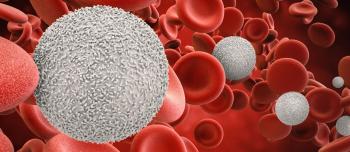In a paper published last month, researchers from the University of North Carolina (UNC) at Chapel Hill suggest that the human immunodeficiency virus type 1 (HIV-1) can replicate in a cell type other than CD4 cells, immune system cells that were believed to be the only site of viral replication. The findings could explain why some HIV-1 patients on antiretroviral therapy are not fully protected from neurological diseases, such as HIV-1-associated dementia (HAD). The lead investigator of the study was Greta Schnell, PhD, former UNC graduate student now at the University of Washington School of Medicine in Seattle.
Schnell and colleagues examined HIV-1 variants in the blood plasma and cerebrospinal fluid (CSF) of subjects with HAD to determine their characteristics. CSF is the clear fluid found in the spaces around and inside the brain and spinal cord. They found that some people diagnosed with HAD carried two genetically distinct HIV variants that are not detected in HIV circulating in the blood. Further, one of the variants could be present for years before the onset of dementia.
The researchers found that one of the HIV variants in CSF and blood replicates in CD4 cells, but the other does not. Instead, it infects and reproduces in macrophages, white immune cells that engulf then digest foreign material such as bacteria.
“This is the first time that anyone has demonstrated active replication of HIV virus in a cell type other than [CD4] cells,” said coauthor Ronald Swanstrom, PhD, UNC Center for AIDS Research in Chapel Hill in a press release. Detection of HIV in the CSF is evidence that the viruses can replicate in the central nervous system, he said. This finding might help persuade patients who are reticent to begin antiretroviral therapy to start earlier.
The UNC team will collaborate with researchers from the University of California at San Francisco to expand the research in HIV patients who do not exhibit signs of dementia and are beginning therapy. The research is funded through a $3 million National Institute of Mental Health grant. The new study will look for biomarkers in the CSF in the form of HIV variants or other immune protein information that may predict improvement, stability or decrease in cognitive capacity during therapy. Biomarkers are biological molecules in blood or tissues that can indicate normal or abnormal biological processes, diseases or responses to a therapy.
The article, “HIV-1 Replication in the Central Nervous System Occurs in Two Distinct Cell Types,” was published in the October 2011 issues of PloS Pathogens.
Source: UNC School of Medicine press release dated October 6, 2011; Poz.com, October 7, 2011





